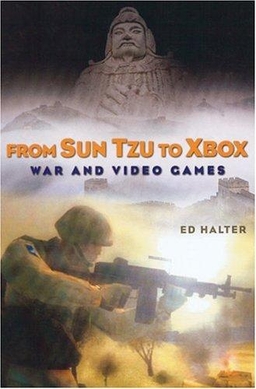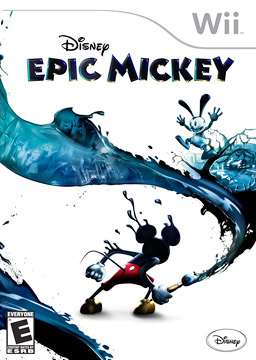
Jordan Mechner is an American video game designer, author, screenwriter, filmmaker, and former video game programmer. A major figure in the development of cinematic video games and a pioneer in video game animation, he began his career designing and programming the bestselling 1984 martial arts game Karateka for the Apple II while a student at Yale University. He followed it with the platform game Prince of Persia five years later; it was widely ported and became a hit. Both games used rotoscoping, where actors shot on film by Mechner were drawn over to create in-game animation. Prince of Persia has become the basis for a long-running franchise, including a 2010 live-action film released by Walt Disney Pictures and an ongoing series of video games published by Ubisoft.

Walt Disney Imagineering Research & Development, Inc., commonly referred to as Imagineering, is the research and development arm of The Walt Disney Company, responsible for the creation, design, and construction of Disney theme parks and attractions worldwide. The company also operates Disney Live Entertainment and The Muppets Studio and manages Disney's properties, from Walt Disney Studios in Burbank to New Amsterdam Theatre and Times Square Studios Ltd. in New York City. Founded by Walt Disney to oversee the production of Disneyland, it was originally known as Walt Disney, Inc., then WED Enterprises, from the initials meaning "Walter Elias Disney", the company co-founder's full name. Headquartered in Glendale, California, Imagineering is composed of "Imagineers", who are illustrators, architects, engineers, lighting designers, show writers and graphic designers.

Jonathan "Seamus" Blackley is an American video game designer and former agent with Creative Artists Agency representing video game creators. He is best known for creating and designing the original Xbox in 2001.
Avalanche Software is an American video game developer and subsidiary of Warner Bros. Games based in Salt Lake City, Utah. It was founded in October 1995 by four programmers formerly of Sculptured Software, including John Blackburn, who is chief executive officer. The studio was acquired by the games arm of The Walt Disney Company in May 2005, and spent the next ten years developing Disney-related titles, including the toys-to-life game Disney Infinity (2013). In May 2016, due to a declining toys-to-life games market, Disney decided to close the games arm, including Avalanche. Warner Bros. Games acquired the studio and re-opened it in January 2017.

From Sun Tzu to Xbox: War and Video Games is a book of video game history written by the journalist and film critic Ed Halter, published in 2006.

Elan Lee is an American game designer, developer, and creator. He has designed games for the Xbox; helped create the world’s first Alternate Reality Games; and with Matthew Inman created the card game Exploding Kittens, whose Kickstarter campaign was the most-backed of its day. He and Inman founded the Exploding Kittens company in 2015.

Epic Mickey is a 2010 platform game developed by Junction Point Studios and published by Disney Interactive Studios for the Wii. It was released in November 2010 in North America and PAL territories and August 2011 in Japan by Nintendo. The game focuses on Mickey Mouse, who accidentally damages a world created by Yen Sid for forgotten characters and concepts and must save it from the Blot. The game features Oswald the Lucky Rabbit, a character created by Walt Disney and Ub Iwerks and originally owned by Universal Pictures; The Walt Disney Company gained ownership of the character in 2006. The game marks the first time that Mickey and Oswald have appeared together.
Tron is an American science fiction media franchise created by Steven Lisberger and Bonnie MacBird. It began with the eponymous 1982 film produced by Walt Disney Pictures. The original film portrays Jeff Bridges as Kevin Flynn, a genius computer programmer and video game developer who becomes transported inside a digital virtual reality known as "The Grid", where he interacts with programs in his quest to escape.

Projection mapping, similar to video mapping and spatial augmented reality, is a projection technique used to turn objects, often irregularly shaped, into display surfaces for video projection. The objects may be complex industrial landscapes, such as buildings, small indoor objects, or theatrical stages. Using specialized software, a two- or three-dimensional object is spatially mapped on the virtual program which mimics the real environment it is to be projected on. The software can then interact with a projector to fit any desired image onto the surface of that object. The technique is used by artists and advertisers who can add extra dimensions, optical illusions, and notions of movement onto previously static objects. The video is commonly combined with or triggered by audio to create an audiovisual narrative. In recent years the technique has also been widely used in the context of cultural heritage, as it has proved to be an excellent edutainment tool.

Jonathan Ackley is an American interactive theme park attraction and computer game designer, writer, and programmer. He is best known for being the Creative Director and Producer on Walt Disney World's Sorcerers of the Magic Kingdom and co-project leader, with Larry Ahern, for LucasArtsGamesThe Curse of Monkey Island.

Disney Infinity 2.0 is a 2014 toys-to-life action-adventure game published by Disney Interactive Studios. It is the sequel to Disney Infinity (2013) and was announced on April 8, 2014. The game was released on September 23, 2014, in North America, September 19, 2014, in the United Kingdom, September 18, 2014, in Australia and the rest of Europe for iOS, PlayStation 3, PlayStation 4, Wii U, Microsoft Windows, Xbox 360, Xbox One, and PlayStation Vita on May 9, 2015.

Fantasia is an American media franchise owned by The Walt Disney Company that commenced in 1940 with the theatrical release of the film of the same name.

Roger Holzberg is an American health innovator, creative director, teacher, writer, and inventor. He is the co-founder and creative director for Reimagine Well, and founded the organization My Bridge 4 Life a support network designed to help patients and families navigate the journey from diagnosis to wellbeing. He previously served as the Creative Director (consulting) for the National Cancer Institute. Holzberg was for twelve years a Vice President / Creative Director at The Walt Disney Company, both at Walt Disney Parks and Resorts Online and at Walt Disney Imagineering. He teaches the Healthcare by Design class at the California Institute of the Arts. His personal use of triathlon as a part of his own wellness plan, and as an inspiration for survivorship, was featured by ABC news in Los Angeles in a promotion for the Malibu Triathlon.

The Emperor's New Groove is a Disney media franchise that started in 2000 with the release of the animated feature film of the same name, produced by Walt Disney Feature Animation and released by Walt Disney Pictures.
Charles Michael "Chuck" Carter is a video game and film artist. He and Robyn Miller designed and rendered the environments in the video game Myst. After Myst, he was an artist for Westwood's Command & Conquer and Command & Conquer: Red Alert series and a digital matte painter on the television series Babylon 5. His digital art clients include Disney, NASA, National Geographic, Scientific American, and BBC. In 2017 Chuck founded his own video game studio, Eagre Games, and released the video game ZED in June 2019. In September of 2021, Chuck joined Standard Magic, a virtual and augmented reality startup based in Maine as Creative Director.

Shadowrun is a science fantasy tabletop role-playing game set in an alternate future in which cybernetics, magic and fantasy creatures co-exist. It combines genres of cyberpunk, urban fantasy, and crime, with occasional elements of conspiracy, horror, and detective fiction. From its inception in 1989, it has spawned a franchise that includes a series of novels, a collectible card game, two miniature-based tabletop wargames, and multiple video games.
Tetsuya Nomura is a Japanese video game artist, designer, producer, and director working for Square Enix. He was hired by Square initially as a monster designer for Final Fantasy V (1992), before being shifted towards secondary character designer alongside Yoshitaka Amano for Final Fantasy VI (1994). Final Fantasy VII (1997) had him working in the original story alongside Hironobu Sakaguchi, and marked his debut as the lead character designer, a capacity he would retain for several future installments of the series, as well as other Square Enix titles such as The Bouncer and The World Ends with You. He also created well-known Cactuar, Gilgamesh and Tonberry characters.
Dražen Bošnjak is a composer and sound designer based in New York City. He founded Q Department, Mach1, and Department of Records. He has created soundtracks and sound design for a number of films, television shows, video games, advertisements, and more recently, virtual reality projects.
Ed Halter is a film programmer, writer, and founder of Light Industry, a microcinema in Brooklyn, New York. He currently teaches at Bard College, where he is Critic in Residence.














